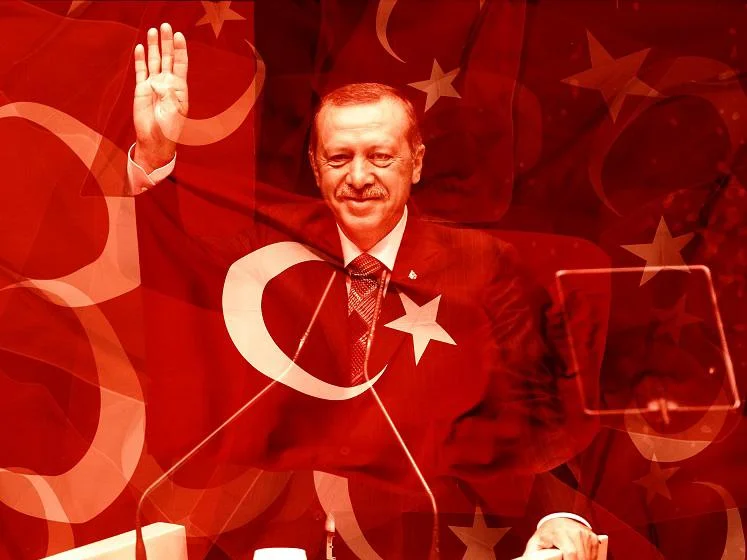One man band

Recep Tayyip Erdoğan is Turkey’s most powerful politician. In 2017, he narrowly won a fiercely contested and controversial referendum to become Turkey’s executive president, and has called a snap presidential and parliamentary election for June 2018. Erdoğan’s expected victory will consolidate his position as Turkey’s most influential political leader since Kemal Atatürk founded the secular republic in 1923.
Erdoğan, a former prison inmate and mayor of Istanbul who climbed up through the political ranks, is a symptom of a global trend of political leaders who claim to support democratic values but work to constantly undermine them. The political manoeuvrings in recent years have accumulated Erdoğan greater power and influence over Turkey, to the extent that he is the country’s de facto dictator.
Dr Esra Özyürek, Chair for Contemporary Turkish Studies at LSE’s European Institute, has co-authored an account of Turkey’s 21st century slide from a progressive society to a country where an Islamist authoritarian has near-absolute power.
She views the military coup of 1980 as a pivotal moment. Following months of instability, the democratically elected government was overthrown by military generals who imposed martial law and imprisoned thousands of their enemies.
Dr Özyürek says: "The coup was justified on the grounds that Turkey could achieve unity through Islam and Turkish nationalism. The media, universities, and trade unions all came under intense attack."
22 years later, when Erdoğan came to power in early 2002, he defined himself against military rulers behind the coup and criticised their legitimacy.
Dr Özyürek says: "Erdoğan was critical of the army. But the power-grab in the following decades was only possible because of how the military coup changed the country."
She draws a parallel between the unsuccessful military coup in 2016 and 1980. As in 1980, the 2016 coup was a pretext for imprisonment and repression of political opponents, with Erdoğan claiming that only he was able to protect the integrity of the Turkish state.
Dr Özyürek says: "In terms of how the parliament was weakened and the state of emergency called which led to thousands of the leaders enemies imprisoned, the consequences were similar."
"But the key difference was that in 1980, the military rulers said that they would leave after establishing order and control in the country, which they did, even if they left a fundamentally less democratic country behind. The state of emergency under Erdoğan’s rule is open-ended; we do not know where it will lead."
Turkey is now at the vanguard of what has been described as the global decline of democracy. Dr Özyürek warns that other countries should be weary of the slow erosion of liberties and freedoms that have characterised Turkey’s democratic slide under Erdoğan.
She says: "Losing democracy doesn’t happen overnight, it’s a slow process. One thing to look out for is the constant attacks on an independent judiciary and media freedom. All power is centralised around a charismatic leader who claims he stands for the nation, even when half of the nation does not support him."
The rapid downturn in theTurkey's economy in May 2018 put the likely victory of Erdoğan in doubt. He only won Turkey’s referendum on its constitution by a slender margin of 2%, and is extremely unpopular amongst large sections of Turkey society. Hope for change and despair at in the face of Erdoğan's increasingly authoritarian measures co-exist amongst the population who does not support Erdoğan.
Leading figures from the resistance to Erdoğan — activists, academics, opposition politicians and journalists — feature heavily in the Dr Özyürek’s book. It is their brave commitment to defending Turkey’s democratic institutions that give Dr Özyürek hope for the future.
She says: "It is clear that half of the country is not happy with Erdoğan, the referendum result was very close, despite his suppression of opposition forces and control of the media during the campaign."
"This suggests that Erdoğan’s hold on power is more fragile that it might appear. In the first round of elections, if he gets less than 50% of the votes, this will already challenge his legitimacy. This presents a chance for political renewal."